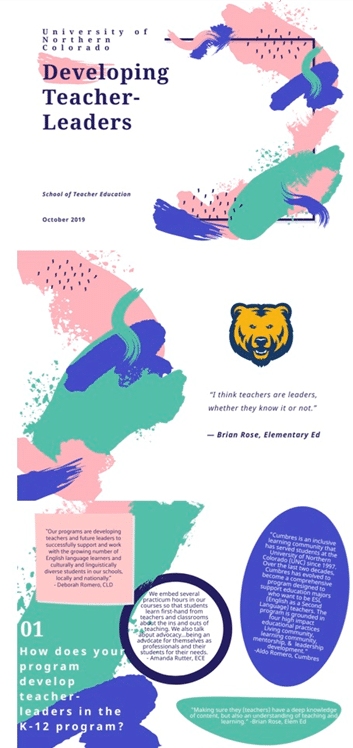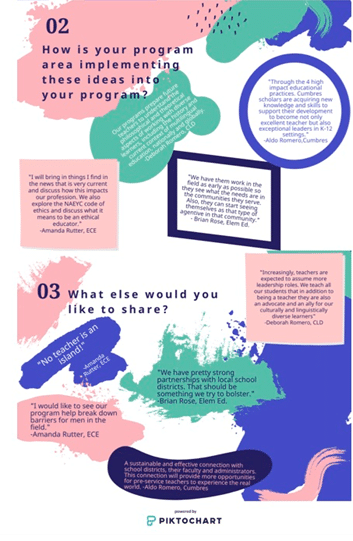Preparing Teacher Leaders to Support Culturally and Linguistically Diverse Communities

The University of Northern Colorado (UNC) holds a long-standing tradition of developing its future teachers as leaders in the community. Since 1889, the school has taken pride in its commitment to teacher excellence. However, never content to settle, the faculty and staff that constitute UNC’s School of Teacher Education (STE) continue to encourage the next generation of teachers to blaze their own trails and inspire change in their communities.
In addition to delivering the widest array of licensure programs in Colorado to meet the state and national needs, STE at UNC offers specialized licensure and endorsement opportunities within its diversity framework. Programs such as the Cumbres Teacher Preparation Program—an inclusive learning community that has served students at UNC since 1997—and Culturally and Linguistically Diverse (CLD) and Teaching English to Speakers of Other Languages (TESOL) endorsements urge teachers to utilize culturally responsive curriculum in the classroom.
Aldo Romero, the director of Cumbres, says the Cumbres program “is a co-curricular, student support services and scholarship program. Over the last two decades, Cumbres has evolved to become a comprehensive program designed to support education majors who want to be English as a Second Language teachers (ESL). The program is grounded in four high impact educational practices: living community, learning community, mentorship, and leadership development.” He also says that Cumbres educators are constantly “acquiring new knowledge and skills to support their development to become not only excellent teachers but also exceptional leaders in K-12 settings.”
Real-world experience is key in developing teacher-leaders at UNC. Outside of the classroom, educators in STE strive for “a sustainable and effective connection with school districts, their faculty, and administrators,” according to A. Romero. “We have them work in the field as early as possible, so they see what the needs are in the communities they serve. Also, they can start seeing themselves as that type of agentive in that community.”

Brian Rose, an associate professor of elementary education at UNC, who believes that this further prepares teachers to take on a leadership role after graduation. “… We also talk about advocacy … being an advocate for themselves as professionals and their students for their needs,” explains Amanda Rutter, the program coordinator of Early Childhood Education.
Deborah Romero, the director of CLD education at UNC, believes that their programs are “developing teachers and future leaders to successfully support and work with the growing number of English language learners and culturally and linguistically diverse students in our schools, locally, and nationally.” Not only do these programs prepare teachers to take on leader roles in their schools, they also provide opportunities for the teachers themselves. D. Romero says that, upon completing additional licensure or certification in culturally responsive programs, “the majority of our graduates have promotions or new jobs in place due to the high demand for teachers with these credentials.” This phenomenon creates a cyclical effect, incentivizing teachers to continue to create change.
Tags: diversity, inclusion, teacher leaders






